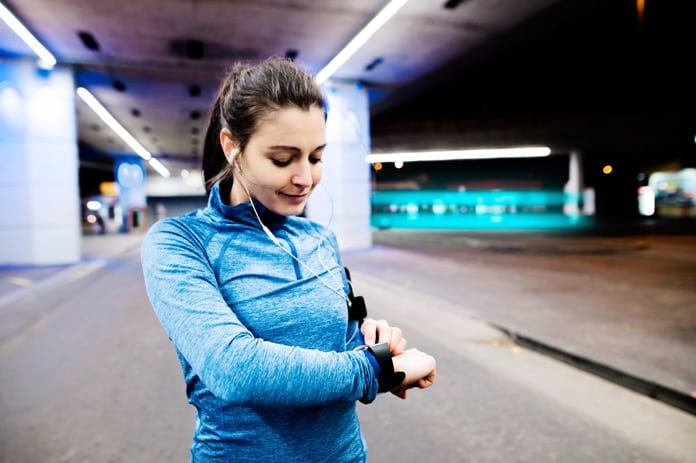Researchers investigated whether evening exercise actually has a negative impact on sleep and appetite. Specifically, the researchers studied the effect of evening high-intensity interval exercise (HIIE) on these bodily functions.
It is a common belief that exercising before bedtime disrupts one’s sleep and should be avoided. Disrupted sleep also affects one’s appetite and caloric intake. Thus, this is a very significant health question. However, the relationship between evening exercise and appetite has not been previously investigated.
With this research gap in mind, scientists in Australia examined the effect of evening High-intensity interval exercise (HIIE) on sleep and appetite. HIIE is an exercise of high intensity for short durations, which is both effective and increasingly popular, especially for people with tight schedules or who are reluctant to exercise. They published their results in Experimental Physiology.
Eleven men did 30 minutes of HIIE in either morning, afternoon, and evening
- The study participants comprised 11 inactive and overweight men. Their mean age was 49 years, and their mean body mass index (BMI) was 28. These are the sorts of subjects for whom High-intensity interval exercise might be of benefit. Some exclusions in selecting subjects for this study included:
- Must be a non-smoker
- Perform less than 150 minutes of moderate-intensity exercise/week
- No previous or current sleep or metabolic disorders
The subjects performed three randomized experimental trials (3 days duration for each). In each individual trial, the subjects did 30 minutes of HIIE, limited to either the morning (6am-7am), afternoon (2pm-4pm), or early evening (7am-8pm). So one trial would comprise only morning exercise, one would comprise only afternoon exercise, and one would comprise only evening exercise.
The HIIE consisted of 60-second sprints on a stationary bike, followed by a 240 second (4 minutes) recovery period. This procedure was repeated 5 more times to produce the 30-minute exercise period.
To measure the study’s impact on sleep, the subjects underwent polysomnography (PSG) measurement using a take-home device, and sleep monitoring through actigraphy. To measure the study’s impact on appetite, bloodwork was taken from the subjects both before and after exercise to quantify the production of appetite-related hormones, such as ghrelin.
Time of exercise makes no difference to sleep, but may affect appetite
The study found that the time of day that HIIE was done had no significant impact on sleep quality (e.g. total sleep time, sleep efficiency, sleep onset latency, wake after sleep onset). Compared to morning exercise, afternoon and evening exercise produced reductions of the hunger-stimulating hormone ghrelin. The time of day that HIIE was done had no significant impact on the subjects’ intake of food (e.g. energy, carbohydrate, fat, protein, sodium, sugar).
Limitations include a greater fasting period for morning exercise.
Some limitations were noted by the study authors. The morning exercise trial involved a greater fasting period (10 hours) than the afternoon or evening exercise trials (3 hours). The difference would have had an effect on the hormone levels measured, for example. Eating and sleeping behaviour may have had as great an effect on energy intake as the HIIE/time of day relationship.
Evening exercise does not affect sleep
The application to the general public is that evening exercise does not have a negative impact on sleep, and should be encouraged if that time suits a person’s schedule best. As well, evening and afternoon exercise may even help people to lose weight by reducing one’s appetite.
Written by Raymond Quan, MASc, MBA
Reference: Larsen et al. “Evening high-intensity interval exercise does not disrupt sleep or alter energy intake despite changes in acylated ghrelin in middle-aged men.” Experimental Physiology. https://doi.org/10.1113/EP087455



